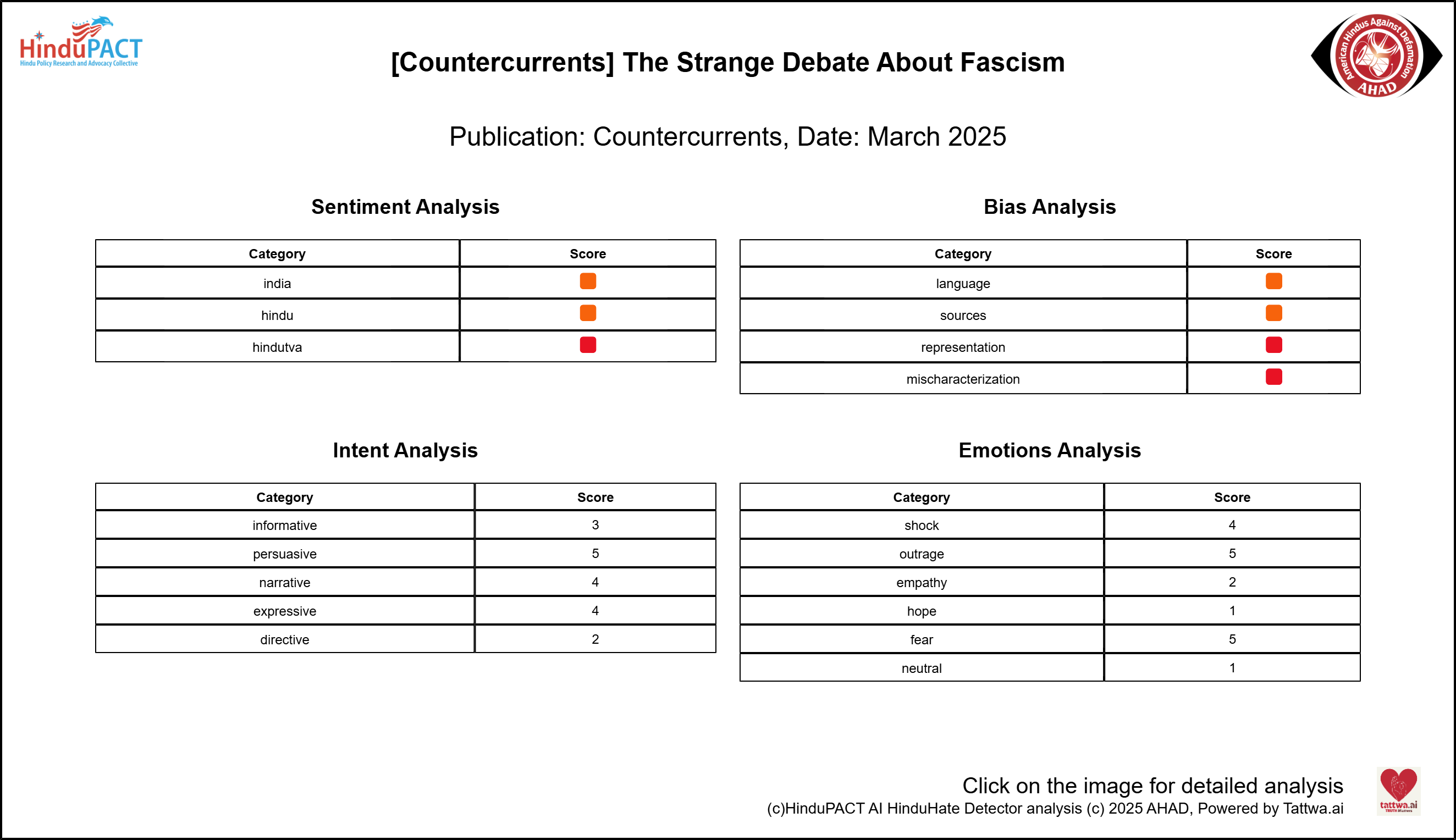Source: Date of Publication: Name of Publication: Abstract
The article explores the debate around whether Hindutva qualifies as a form of fascism. It discusses historical influences, ideological similarities, and contemporary commentaries linking Hindutva to fascist principles. The piece references scholars who have drawn parallels between Hindutva and European fascism while also acknowledging counterarguments that emphasize the distinct socio-political context of India. The article appears to position Hindutva within an authoritarian and ethno-nationalist framework but does not provide a conclusive judgment.
Sentiment Analysis
| Aspect | Score | Traffic Light | Explanation | Tone | Framing | Sources | Mischaracterization | Headline |
|---|
| India | | | | | | | | |
| Hindu | | | | | | | | |
| Hindutva | | | | | | | | |
Bias Analysis
| Aspect | Score | Traffic Light | Explanation |
|---|
| Language | | | |
| Sources | | | |
| Representation | | | |
| Mischaracterization | | | |
| Framing bias | | | |
| Headline tone | | | |
| Expert selection bias | | | |
| Historical context bias | | | |
Intent Analysis
| Aspect | Score | Key Evidence |
|---|
| Informative | | |
| Persuasive | | |
| Narrative | | |
| Expressive | | |
| Directive | | |
Emotions Analysis
| Emotion | Score | Key Evidence |
|---|
| Shock | | |
| Outrage | | |
| Empathy | | |
| Hope | | |
| Fear | | |
| Neutral | | |
Overall Scores Analysis
| Metric | Score | Std Dev | Confidence Interval | Traffic Light |
|---|
| Overall Sentiment Score | | | | |
| Overall Bias Score | | | | |
| Overall Intent Score | | | | |
| Overall Emotion Score | | | | |
| Hindu Visibility Index | | | | |
| Narrative Shift Index | | | | |
| Hinduphobia Risk Score | | | | |
| Hindutva Alignment Score | | | | |
| Reader Influence Score | | | | |


